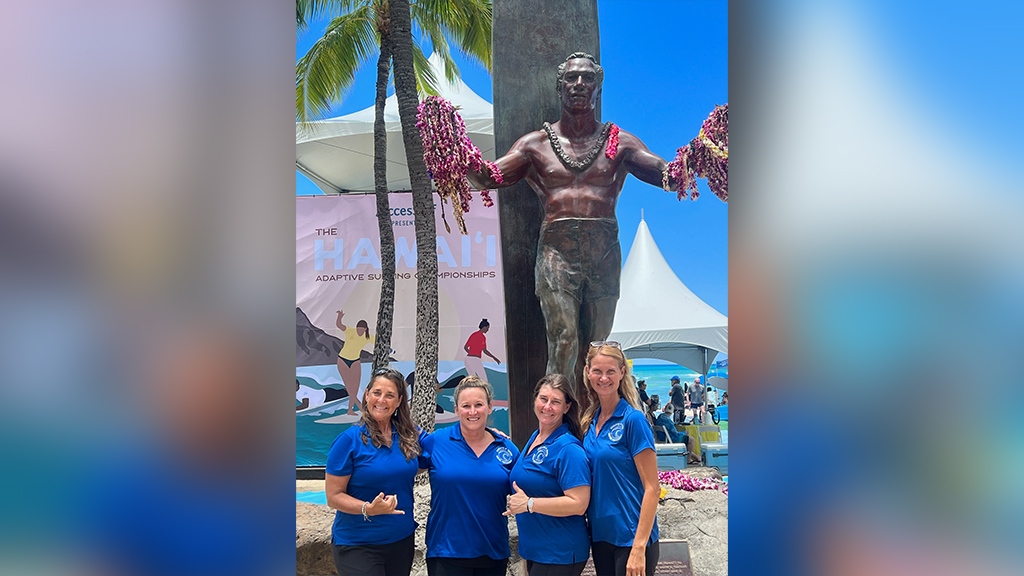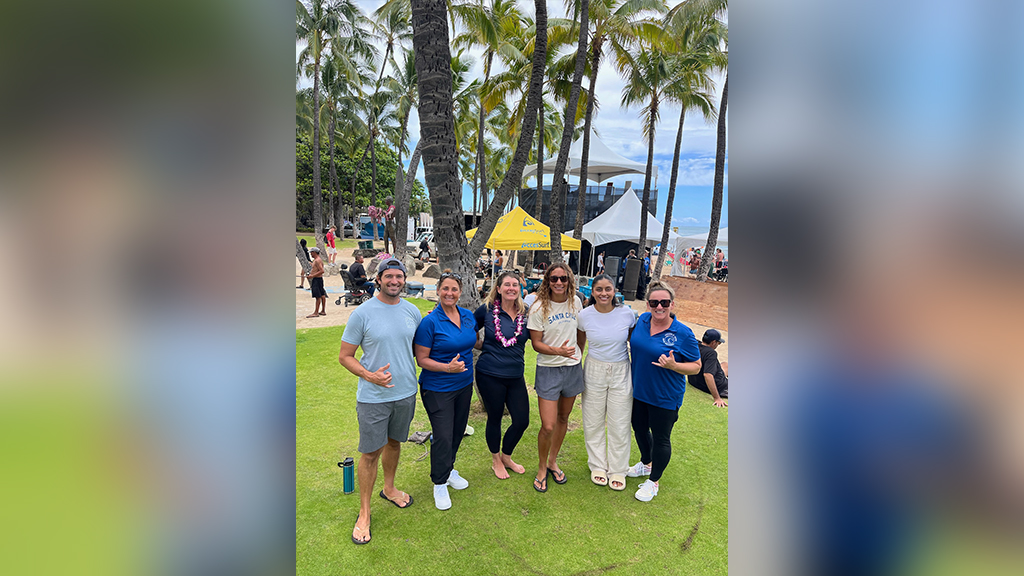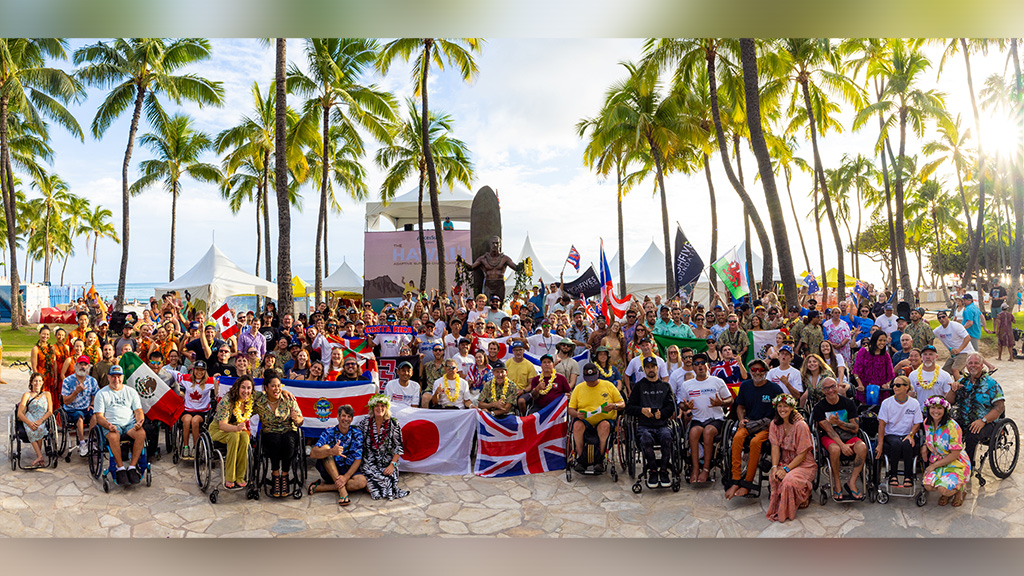The Hawaiʻi Adaptive Surfing Championships (HASC) takes place each May in Waikiki. The event showcases the accomplishments and skills of competitive adaptive surfers while championing inclusivity and accessibility in water sports for individuals with physical and visual disabilities. Hawaiʻi Pacific University has been a proud sponsor of the event for the past two years, and HPU’s Doctor of Physical Therapy (DPT) students volunteered at the event both years.
AccesSurf is the organization that hosts the HASC. They host monthly Day at the Beach and Wounded Warrior events to support adults, children, and veterans with physical, visual, and intellectual disabilities with the opportunity to get in the ocean and surf or swim. Students from the HPU DPT and Doctor of Occupational Therapy (OTD) programs volunteer at these events throughout the year.
Heather David, PT, MPT, EDD, Assistant Director of Student Affairs and Assistant Professor for HPU’s Doctor of Physical Therapy Honolulu program, is the HPU volunteer lead and a medical classifier of the HASC event. She was involved in the initial development of the classification system for adaptive surfing and continues to be involved in research related to classification in adaptive sports. Victoria Feige, PT, MPT, Adjunct Faculty in the HPU DPT Honolulu program, is one of the adaptive surfers competing in the HASC event and is a 5x Para Surfing World Champion. HPU DPT students have had the opportunity to learn from Feige in the classroom and in the water.
During this year’s HASC event held from May 13-16, HPU DPT students volunteered to assist with athlete check-ins and classification set-up. Volunteers collected demographic information, ensured accuracy on classification forms, and inquired about training history, equipment modifications, and assistance for the athletes to be used in classification decisions and research. While primarily involved in intake assistance, HPU students also had the opportunity to observe the classification team perform assessments and make decisions about which sport class the athletes should surf in to promote fairness in competition. This involvement allowed students to practice history-taking, contribute to research data collection, and observe the practical application of classroom-learned tests and measures, including strength, coordination, balance, and limb assessments on athletes.
Through their volunteer service, at HASC and through year-round AccesSurf events, HPU students experience hands-on learning skills within their academic disciplines and experience the impact of breaking down barriers for individuals with physical disabilities to access the water. David noted that participants and volunteers alike experience a profound sense of joy and satisfaction from their involvement in these events, describing them as deeply enriching experiences.
David also emphasized the importance of water access for people with physical disabilities. Organizations like AccesSurf assist with overcoming obstacles, including traversing sand, navigating terrain, providing adaptive equipment, and receiving water assistance. She underscored the importance of understanding broader implications beyond clinical settings, emphasizing, "It is important to make connections to what happens next, after initial rehabilitation programs are completed, how a person moves forward and has a life that is rewarding and fulfilling regardless of their disability.” AccesSurf provides commendable opportunities for participants and volunteers alike.
While there is a strong connection between AccesSurf and the HPU DPT and OTD programs, all HPU students are encouraged to participate as volunteers. Volunteering can be rewarding in numerous ways, and the service opportunities extend beyond the occupational therapy and physical therapy fields.
AccesSurf also hosts events such as Day at the Beach, Wounded Warriors at the Beach, and more. For more information on volunteer opportunities, visit AccesSurf.org






